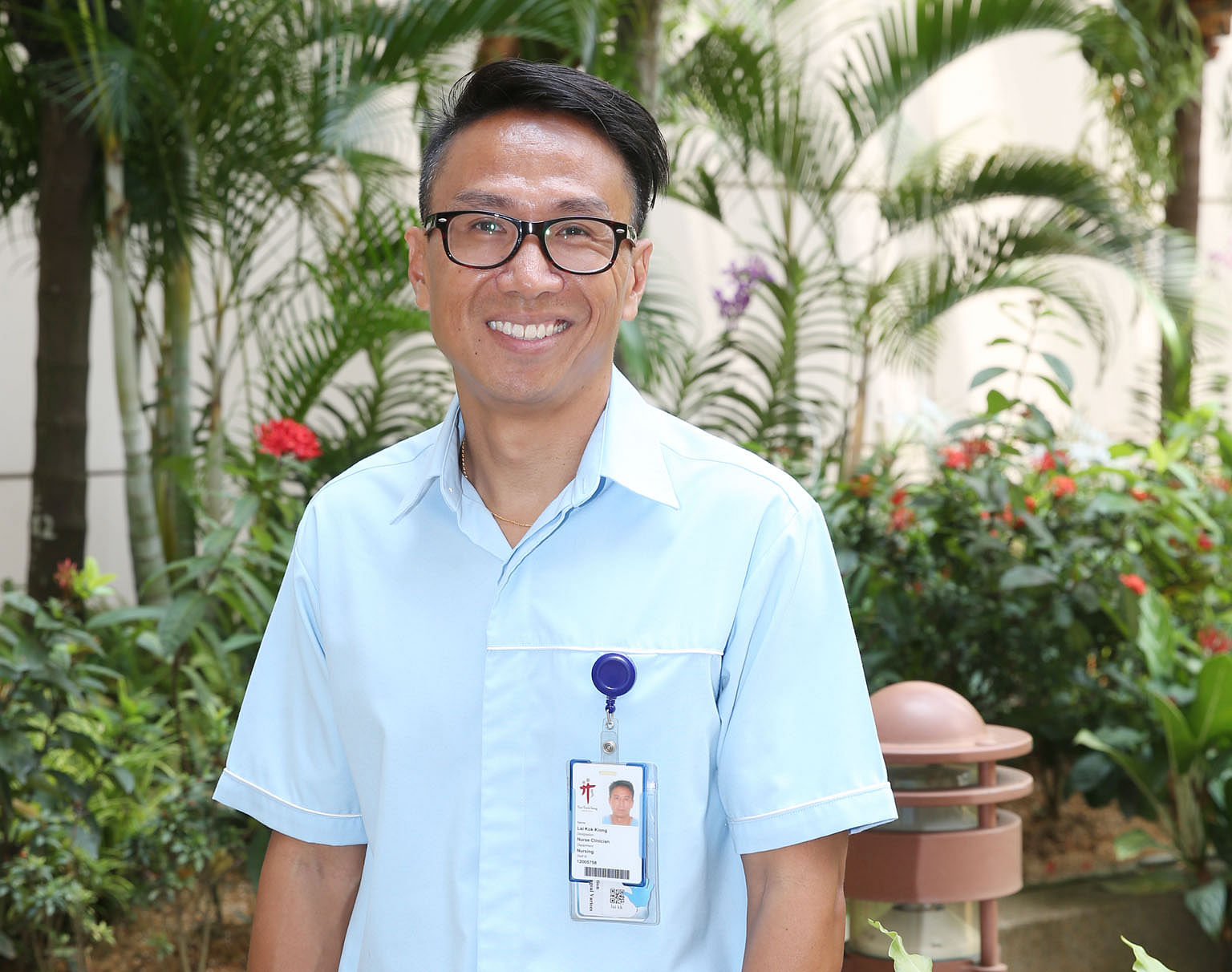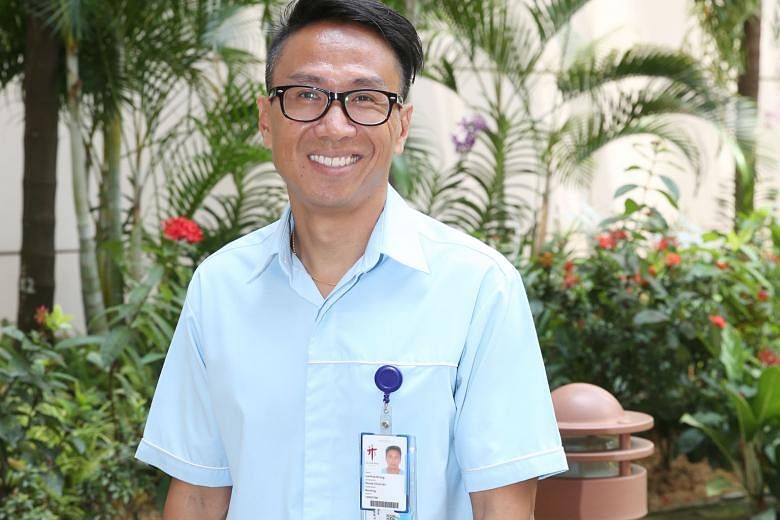When Mr Lai Kok Kiong graduated with a mechanical engineering diploma in the 1990s, he seemed set to remain in the mechanics sector for his entire professional career.
But more than two decades later, he is a nurse clinician at Tan Tock Seng Hospital, caring for patients and training new nurses.
He stayed in the mechanical engineering field for eight years, dealing with machines and vendors in a semiconductor firm. During that time a desire built up for a change.
Says Mr Lai, 43: "Electronics lacked the human touch. In the long run, it felt quite superficial. I wanted to do something different."
He responded to a newspaper advertisement calling for mid-career professionals, managers, executives and technicians to join nursing.
With nursing not traditionally a job for men, he was outnumbered by his female colleagues, but he was not bothered. "They try to assign me to male patients, but in the critical care unit, sometimes there's no choice because the patient is there."

Female colleagues accompany him for such cases.
In 2004, he completed a two-year professional conversion programme to train registered nurses and got a nursing diploma. It was sponsored by the Health Ministry, together with healthcare companies.
As someone who had never studied biology, Mr Lai had a lot to catch up on. He started with classroom lessons, and progressed to attachments in hospitals and polyclinics to learn the different areas of care.
After he graduated, he worked for two years as a nurse in general wards, and gravitated towards the critical care unit, where he learnt to clinically assess patients' conditions while coping with the stress of the job's intensive nature.
Mr Lai, who is single and lives with his parents, recalls that he once cried when a 14-year-old with mental disabilities was hospitalised but died a few days later.
"When it came to the family saying, 'We don't want her to suffer any more, so we'll just let go', it was quite sad. Especially when you see the father and mother crying," he says.
"Sometimes when you see a patient coming in too young, you think, 'so wasted'. But you need to learn to detach yourself."
He studied part time and went on to complete an Advanced Diploma in Nursing (Critical Care) in 2009, and then graduated with a Bachelor of Science (Nursing) in 2013.
He is now applying for a master's in clinical education and a scholarship from the Health Ministry.
He now has to work the occasional 12-hour shift at night, sometimes even on weekends. But he notes of the biggest difference between his current job and his former one: "Machines don't talk back. But they don't say 'thank you' either."
Charissa Yong


